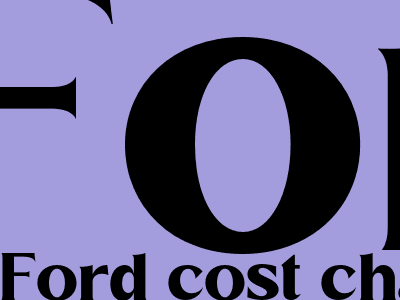
Ford Cost Challenges Pervade Q3 Earnings
Ford's third-quarter earnings report reveals ongoing cost challenges, impacting profitability
Despite strong demand for its vehicles, Ford Motor Company faces persistent cost pressures, leading to a decline in profits in the third quarter of 2023.
Ford's financial results for the third quarter, released on October 26, 2023, indicate a net income of $1.4 billion, down from $2.2 billion in the same period last year. The decrease in profitability is primarily attributed to rising costs in various areas of the business.
One major factor contributing to Ford's cost challenges is the ongoing global supply chain disruptions. The company has been grappling with shortages of critical components, such as semiconductors, which have impacted production and increased costs. Additionally, rising inflation has led to higher expenses for raw materials, transportation, and other operating costs.
Ford's cost pressures are also exacerbated by its significant investments in new technologies, particularly electric vehicles (EVs). The company is investing heavily in the development and production of EVs, which require substantial upfront costs. These investments are expected to continue in the coming years as Ford aims to transition to a fully electric lineup by 2035.
Despite the cost challenges, Ford remains confident in its long-term strategy and believes that its investments in EVs will ultimately drive future growth and profitability. The company is taking steps to mitigate cost pressures, including optimizing production processes, negotiating with suppliers, and exploring new revenue streams.
Ford's cost challenges are not unique in the automotive industry. Other automakers have also faced similar pressures due to supply chain disruptions and rising costs. However, Ford's investments in EVs and its commitment to sustainability differentiate it from competitors and position it for long-term success.
As Ford navigates the current cost challenges, it will be important for the company to continue to focus on operational efficiency, cost reduction initiatives, and the execution of its EV strategy. The company's ability to overcome these challenges will be crucial in determining its future profitability and competitiveness in the evolving automotive landscape.